It’s a buzzing Monday afternoon downtown at the Impact Sciences office. Across from me at our oval-shaped wooden table is a bright-eyed environmental enthusiast with a blossoming career ahead of him. Only a couple months ago, Raul Castillo transitioned from an intern with the company to a full-time Staff Planner, all while completing his master’s degree in Urban Planning at the University of Southern California.
Besides being a self-proclaimed juggler of random objects (perhaps a figurative prerequisite in the world of CEQA planning), Raul had a pretty interesting pathway into environmental consulting. Maybe if you knew him a few years ago, you’d find him sitting in a business class at California Lutheran University, where he eventually earned an undergraduate degree in Business Administration. It might have seemed like a far cry from environmental planning, but, if you ask Raul, it was a perfect recipe for the evolution of his career.
Most days, Raul sits behind a computer, tapping away on a keyboard, assisting in the preparation of multiple CEQA documents for the Los Angeles Unified School District, City of Los Angeles, the Southern California Association of Governments, and City of Petaluma to name a few. I imagine his brain is filled with burning CEQA questions as a new planner. But what really goes on in the mind of a recent graduate making strides in the world of environmental compliance? I sat down with Raul to find out.
Kara: So tell me about you, and why you chose to work in the environmental field?
Raul: Well, I studied urban planning at USC, and I would say some of my favorite classes were dealing with sustainability—the balance between economic growth, the environment, and equity, and just bringing that balance to development. So that’s kind of what interested me in the environmental side. Before that, I was actually more interested in economic development, and then those classes opened my eyes to the bigger picture of the need for a balance between that growth and protecting the environment and equity as well.
Kara: So you were initially interested in Economic Development. How did that interest come about for you?
Raul: I studied business in undergrad, but I was much more interested in overall bigger picture classes like Economics as well as International Development. And when I studied abroad was one of the biggest eye-openers as well. I studied abroad in Costa Rica and while there, I saw that stark contrast between resort towns and, then right next to it, people struggling to get running water. And so when I came back, my business classes were all profits oriented and just very one dimensional. I’ve always had this feeling that there’s something missing. Just seeing that was a real eye opener for me.
Kara: So, how did you land in your position at Impact Sciences?
Raul: It was through Impact Sciences’ environmental planning internship recommended by one of my favorite professors at USC, Ms. Castillo (no relation). She was a really good professor. Her classes dealt with equity and environmental justice. I started interning at Impact Sciences in the summer of 2018, and really enjoyed it.
Kara: Very cool. So what made Ms. Castillo your favorite professor at USC?
Raul: It was really the class she taught. It was an eye opener about redlining. And coming from a business background, it was my first time seeing the equity issues that come with urban planning and how these aren’t random mistakes, these are all planned. It shows today—what the effects are of previous planning mistakes.
Kara: Are there any other environmental issues that interest you?
Raul: More specifically, with CEQA reports, I enjoy the cultural resources sections. My colleagues and I talked about it recently—historic buildings and monuments and the preservation of historical resources. We don’t sometimes think of those as environmental issues, but they are. They are a part of our environment and resources that we want to protect. I get really interested in what we consider a cultural resource. I know right now there are standards that we follow, but it doesn’t have to be a specific type of building and event. And then you get into resources that are bars but events happen at them, or parks where protests happen within that park. That can be a huge historic area, and I think we need to recognize those areas.
Kara: So you’ve been with the company over a year now, first as an intern and now as a staff planner. So far in your experience, what do you enjoy most about working for the company?
Raul: I really enjoy the environment and the culture that we have here, and we all get along. Even when we’re just having conversations at lunch, we‘re always learning either about each other or about how we can improve as a collective group but also sometimes personal growth or about the books we’re reading. We’re always trying to improve, even though I struggle with the caffeine thing.
Kara: Same. You’re not alone in the caffeine struggle. [Both in laughter] Speaking of improvements, in the next year, what major professional goals do you have for yourself?
Raul: I really want to nail down being able to go through the analysis portion of our [CEQA] documents and be able to handle that on my own. Right now, I’m doing the analysis, but I have to check if I’m doing it right sometimes. So my goal is to be a lot more comfortable in doing it on my own.
Kara: That’s a really good goal to have. On the flipside, what things do you enjoy doing when you’re not working on your professional goals?
Raul: I really enjoy just seeing parts of the city. Since the office has moved to downtown Los Angeles, I’ve started to come out here more since I’m more familiar with the area. So I enjoy going to different restaurants downtown. Spring Street is really fun—that’s probably my favorite part of the city just because there’s so much going on within that one-block radius.
Kara: Well, thank you, Raul. That’s all for now. That was easy, right?
Raul: Yes! Thank you.
The team at Impact Sciences is extremely proud of Raul’s accomplishments! If you wish to connect with Raul or send him your well wishes, feel free to drop him a note via email at info@impactsciences.com.

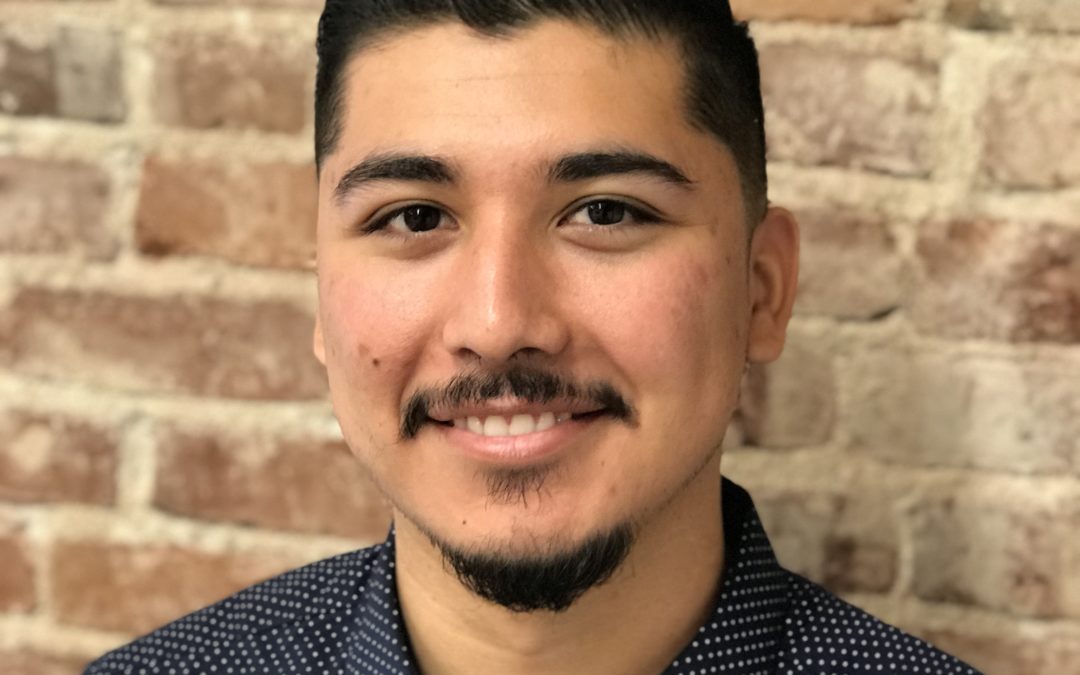
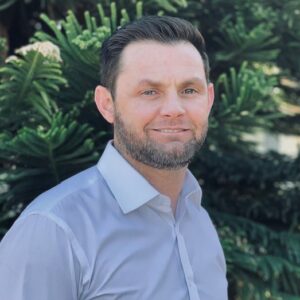 Brett Pomeroy, Associate Principal, has more than 17 years of professional experience in the environmental planning field with an emphasis in environmental compliance pursuant to CEQA and the National Environmental Policy Act (NEPA). Brett possesses a strong technical background and has provided quantitative analytical modeling support for air quality, GHG, health risk assessments, noise and vibration, and shade/shadow impact analyses for several complex and multi -faceted projects using industry accepted modeling software. Specifically, Brett has experience with AERMOD and ISC air dispersion modeling systems, CalEEMod, URBEMIS, CALINE4-based model, noise modeling based on the Federal Highway Administration’s Traffic Noise Model (TNM), and the Amethyst Shadow Calculator. In addition to providing technical support, Brett conducts environmental analyses for a wide array of environmental issues, conducting land use surveys, ambient noise monitoring, site photography, general environmental research and document management. Brett’s experience includes preparing and managing environmental documentation for both private- and public-sector clients. He has provided environmental analyses to support several types of environmental documents including Categorical Exemptions, Initial Studies, Negative Declarations (NDs), Mitigated Negative Declarations (MNDs), Mitigation Monitoring & Reporting Programs (MMRPs), Environmental Impact Reports (EIRs), and addendums.
Brett Pomeroy, Associate Principal, has more than 17 years of professional experience in the environmental planning field with an emphasis in environmental compliance pursuant to CEQA and the National Environmental Policy Act (NEPA). Brett possesses a strong technical background and has provided quantitative analytical modeling support for air quality, GHG, health risk assessments, noise and vibration, and shade/shadow impact analyses for several complex and multi -faceted projects using industry accepted modeling software. Specifically, Brett has experience with AERMOD and ISC air dispersion modeling systems, CalEEMod, URBEMIS, CALINE4-based model, noise modeling based on the Federal Highway Administration’s Traffic Noise Model (TNM), and the Amethyst Shadow Calculator. In addition to providing technical support, Brett conducts environmental analyses for a wide array of environmental issues, conducting land use surveys, ambient noise monitoring, site photography, general environmental research and document management. Brett’s experience includes preparing and managing environmental documentation for both private- and public-sector clients. He has provided environmental analyses to support several types of environmental documents including Categorical Exemptions, Initial Studies, Negative Declarations (NDs), Mitigated Negative Declarations (MNDs), Mitigation Monitoring & Reporting Programs (MMRPs), Environmental Impact Reports (EIRs), and addendums.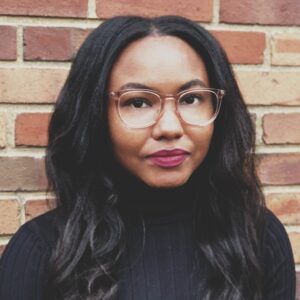 Kara Yates Hines, Director of Operations and Publications Manager, leads operations at Impact Sciences and oversees the production and publication of all environmental documents. She has more than 14 years of combined experience in publishing, quality control coordination, science and public health technical writing and editorial review, and digital marketing methodologies. As the primary manager for document production, Kara implements the firm’s operational processes and manages the document publishing flow, including QA/QC review, graphic design, formatting, and visual layout. She leads in-house production of CEQA/NEPA reports, including booklet assembly and digital productions. With a unique understanding of both the CEQA review process and best practices in publishing technically complex documents, Kara ensures the firm’s environmental reports are publicly accessible, easy to read and understand, well organized, and visually appealing. Kara has a masters degree in Publishing from The George Washington University and a bachelors degree in English from Spelman College. She is a member of the Association of Environmental Planners (Los Angeles Chapter).
Kara Yates Hines, Director of Operations and Publications Manager, leads operations at Impact Sciences and oversees the production and publication of all environmental documents. She has more than 14 years of combined experience in publishing, quality control coordination, science and public health technical writing and editorial review, and digital marketing methodologies. As the primary manager for document production, Kara implements the firm’s operational processes and manages the document publishing flow, including QA/QC review, graphic design, formatting, and visual layout. She leads in-house production of CEQA/NEPA reports, including booklet assembly and digital productions. With a unique understanding of both the CEQA review process and best practices in publishing technically complex documents, Kara ensures the firm’s environmental reports are publicly accessible, easy to read and understand, well organized, and visually appealing. Kara has a masters degree in Publishing from The George Washington University and a bachelors degree in English from Spelman College. She is a member of the Association of Environmental Planners (Los Angeles Chapter).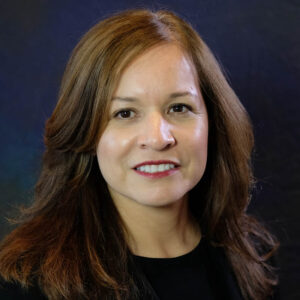 Martha Lira, Chief Financial Officer, oversees all aspects of Impact Sciences’ finances, including the development and management of budgets, preparation of financial statements, and all other financial reporting to the firm’s Chief Operating Officer. Martha brings to Impact Sciences over 25 years of business management experience in the public, private, and nonprofit sectors. Prior to joining Impact Sciences, Martha worked for a women-owned CPA firm as a staff accountant, managing small business accounts and tax filing requirements.
Martha Lira, Chief Financial Officer, oversees all aspects of Impact Sciences’ finances, including the development and management of budgets, preparation of financial statements, and all other financial reporting to the firm’s Chief Operating Officer. Martha brings to Impact Sciences over 25 years of business management experience in the public, private, and nonprofit sectors. Prior to joining Impact Sciences, Martha worked for a women-owned CPA firm as a staff accountant, managing small business accounts and tax filing requirements.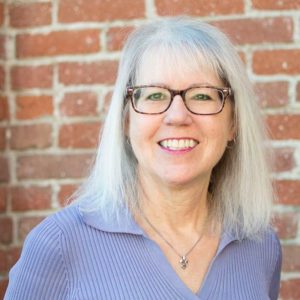 Lynn Kaufman, Associate Principal, has more than 25 years of experience in both the management and preparation of environmental review documents pursuant to CEQA and NEPA for clients in both the public and private sector. Ms. Kaufman has written numerous CEQA analyses for high profile and environmentally sensitive projects in both urban and rural settings, and acts as a day-to-day contact for in-house and agency staff, subconsultants, and applicants, providing valuable insight to identify environmental constraints and feasible mitigation measures.
Lynn Kaufman, Associate Principal, has more than 25 years of experience in both the management and preparation of environmental review documents pursuant to CEQA and NEPA for clients in both the public and private sector. Ms. Kaufman has written numerous CEQA analyses for high profile and environmentally sensitive projects in both urban and rural settings, and acts as a day-to-day contact for in-house and agency staff, subconsultants, and applicants, providing valuable insight to identify environmental constraints and feasible mitigation measures.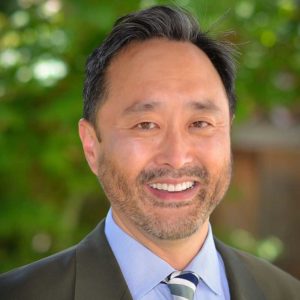 Douglas Kim, AICP, Managing Principal, oversees Northern California environmental services for Impact Sciences. His 30-year career includes political, policy, and technical expertise in transportation, air quality, and land use planning. Mr. Kim has prepared and reviewed CEQA and NEPA documents for land use and transportation projects and authored guidance documents on how to perform air quality analyses for two air pollution control districts. He has performed noise, vibration, climate change, and traffic impact analyses for over 100 CEQA environmental analyses throughout California. Mr. Kim has developed long- and short-range multi-modal transportation plans, including performing alternatives analyses, and managing technical modeling. He has managed preparation of air quality plans, developed air quality regulations, climate action plans, and performed air quality analysis and dispersion modeling for land use plans and development projects throughout the state.
Douglas Kim, AICP, Managing Principal, oversees Northern California environmental services for Impact Sciences. His 30-year career includes political, policy, and technical expertise in transportation, air quality, and land use planning. Mr. Kim has prepared and reviewed CEQA and NEPA documents for land use and transportation projects and authored guidance documents on how to perform air quality analyses for two air pollution control districts. He has performed noise, vibration, climate change, and traffic impact analyses for over 100 CEQA environmental analyses throughout California. Mr. Kim has developed long- and short-range multi-modal transportation plans, including performing alternatives analyses, and managing technical modeling. He has managed preparation of air quality plans, developed air quality regulations, climate action plans, and performed air quality analysis and dispersion modeling for land use plans and development projects throughout the state.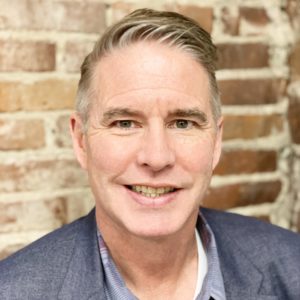 John R. Anderson, M.A., M.Phil., is Associate Principal for the Northern California-Oakland office. With more than 30 years of experience, John brings to Impact Sciences extensive knowledge of the regulatory, environmental health and safety, and environmental planning industries. He has a long track record for managing large environmental programs and projects across North America. Most recently, John has focused his attention on the Corrections, Education, Energy and Water planning and compliance markets. In California, he has managed the Environmental Planning Program for the Los Angeles Unified School District; prepared Program EIRs for various water authorities and school districts; performed due diligence for public and private sector clients in real estate and corporate acquisitions; and has been retained as an expert witness in relation to school, transportation, and remediation projects. John has a seasoned familiarity with project management, staff development, and financial and administrative management. He’s provided strategic leadership for projects in the areas of CEQA/NEPA environmental impact reporting, risk management, preliminary endangerment assessments, Phase I and follow-on invasive site investigations, litigation support, QA/QC programs, public participation programs, and site safety programs. Impact Sciences is proud to have John as a vital member of our firm.
John R. Anderson, M.A., M.Phil., is Associate Principal for the Northern California-Oakland office. With more than 30 years of experience, John brings to Impact Sciences extensive knowledge of the regulatory, environmental health and safety, and environmental planning industries. He has a long track record for managing large environmental programs and projects across North America. Most recently, John has focused his attention on the Corrections, Education, Energy and Water planning and compliance markets. In California, he has managed the Environmental Planning Program for the Los Angeles Unified School District; prepared Program EIRs for various water authorities and school districts; performed due diligence for public and private sector clients in real estate and corporate acquisitions; and has been retained as an expert witness in relation to school, transportation, and remediation projects. John has a seasoned familiarity with project management, staff development, and financial and administrative management. He’s provided strategic leadership for projects in the areas of CEQA/NEPA environmental impact reporting, risk management, preliminary endangerment assessments, Phase I and follow-on invasive site investigations, litigation support, QA/QC programs, public participation programs, and site safety programs. Impact Sciences is proud to have John as a vital member of our firm.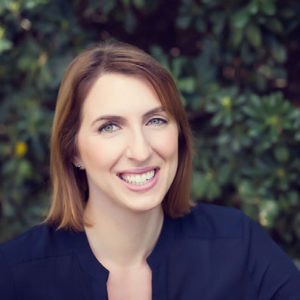 Jessica Kirchner, AICP, President, also serves as the Managing Principal for the firm. Jessica’s corporate responsibilities include contract compliance and financial management with an eye toward strategic growth. Jessica has more than two decades of project work in CEQA/NEPA compliance and places an emphasis on meeting client needs and providing real-world solutions to common CEQA pitfalls. A hands-on owner, Jessica frequently serves in multiple roles on projects, including contract and project manager, as well as conducting and writing environmental analyses all while overseeing the firm’s most high-profile clients, revenue and growth of the firm. With a background in journalism, Jessica’s emphasis on clear, concise documents that are not overly complicated has become a company hallmark, along with the ability to deliver projects on unbelievably tight deadlines. She is highly skilled at taking technical documents and concepts and translating them into reader-friendly concepts.
Jessica Kirchner, AICP, President, also serves as the Managing Principal for the firm. Jessica’s corporate responsibilities include contract compliance and financial management with an eye toward strategic growth. Jessica has more than two decades of project work in CEQA/NEPA compliance and places an emphasis on meeting client needs and providing real-world solutions to common CEQA pitfalls. A hands-on owner, Jessica frequently serves in multiple roles on projects, including contract and project manager, as well as conducting and writing environmental analyses all while overseeing the firm’s most high-profile clients, revenue and growth of the firm. With a background in journalism, Jessica’s emphasis on clear, concise documents that are not overly complicated has become a company hallmark, along with the ability to deliver projects on unbelievably tight deadlines. She is highly skilled at taking technical documents and concepts and translating them into reader-friendly concepts.